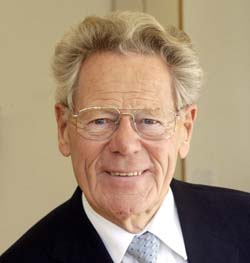To Pope Francis
Copied to:
Cardinal Giuseppe Bertello, president of the Vatican City state administration:
Cardinal Francisco Javier Errázuriz Ossa, archbishop emeritus of Santiago, Chile
Cardinal Oswald Gracias, archbishop of Mumbai, India
Cardinal Reinhard Marx, archbishop of Munich and Freising, Germany
Cardinal Laurent Monsengwo Pasinya, archbishop of Kinshasa, Congo
Cardinal Sean Patrick O’Malley, archbishop of Boston:
Cardinal George Pell, archbishop of Sydney, Australia:
Cardinal Oscar Andrés Rodríguez Maradiaga, archbishop of Tegucigalpa, Honduras:
Monsignor Marcello Semeraro, bishop of Albano, panel secretary:
Cardinal Gianfranco Ravasi, President, Pontifical Council for Culture:
Archbishop Carlo Maria Viganò, U.S. Apostolic Nuncio
|
Dear Pope Francis: Many around the world – Catholics and non-Catholics alike – hope that your election will mark a turning point in the history of the Church. We are encouraged by your decision to create an advisory commission of mainly residential bishops from around the world to reexamine how the Church governs itself. We are especially pleased by your new style of leadership, less that of a monarch, more as a simple servant-bishop who listens to the people of God. We, the undersigned, people of all walks of life from all over the world, would like you to hear us. Church governance was defined fifty years ago at the Second Vatican Council: “The order of bishops… together with their head, the supreme pontiff, and never apart from him…have supreme and full authority over the universal church.” This says very clearly that the world’s bishops, together with the pope, should be governing the Church. Since the Council ended, however, the Roman Curia, an institution far removed from the people, has edged the bishops aside and often made bishops feel they are working for the Curia. Now is the time to return to the spirit of Vatican II by putting more emphasis on two of its principles: collegiality, placing responsibility in the hands of many rather than in the hands of one, and subsidiarity, that no decision be made on a higher level that can be made more effectively on a lower level. We are well aware that, over the centuries, the governance of the Church has changed in many ways. The early Church members elected their own bishops. Going back to our roots and returning to the earliest tradition in the Church, we’d like to join with many church leaders worldwide in urging you to encourage the people of God throughout the world – led by the local clerical, religious, and lay leaders – to elect the bishops of their diocese. Over time, as current bishops retire and new elected bishops take their place, such a move would give the people a voice, a vote and citizenship and lead to a more accountable Church. Then local churches, with the guidance of the Holy Spirit, could collegially address the many issues facing them today and serve as a resource to their bishop in addressing needed reforms. Listening bishops, in turn, would be more prepared to help the pope deal with the many issues facing the universal Church. You know that, for decades, numerous scholars, theologians and church leaders (including Joseph Ratzinger when he was still a cardinal) have been talking about the Church’s need to decentralize because, as many say, the Church has become “unmanageable.” We submit this proposal in a spirit of love for our Church and a deep concern for its future. If the Church is to “be the place of God’s mercy and love, where everyone can feel themselves welcomed, loved, forgiven, and encouraged to live according to the good life of the Gospel,” as you have said, there should be a system of governance that allows for more input from the people who make up the Church. And if the Church is to “have open doors so that all might enter,” even the input of those outside the Church must be welcomed. We close with the urgent request that you decentralize the Church and put the election of bishops by the people on your October meeting agenda.
|


